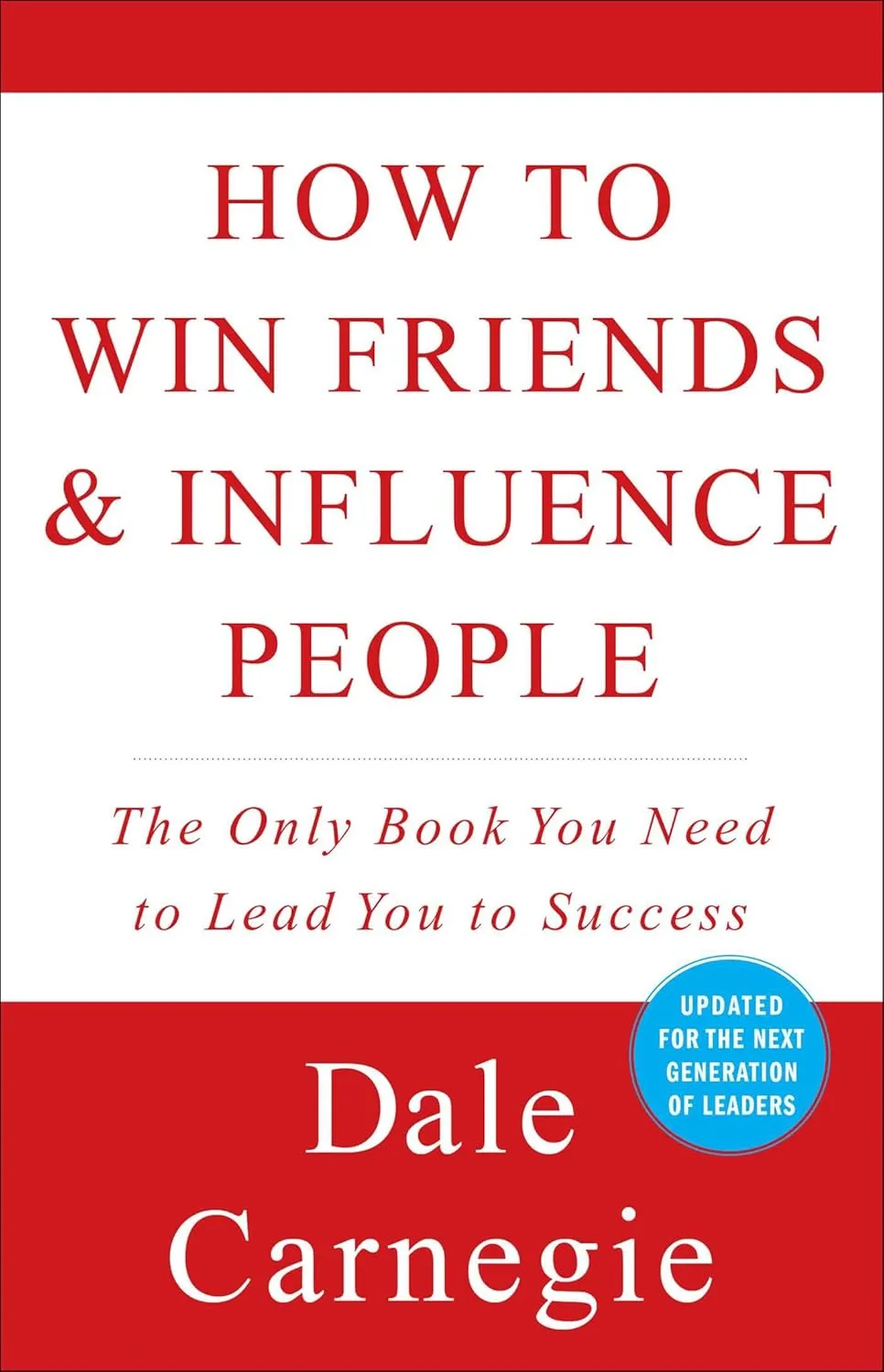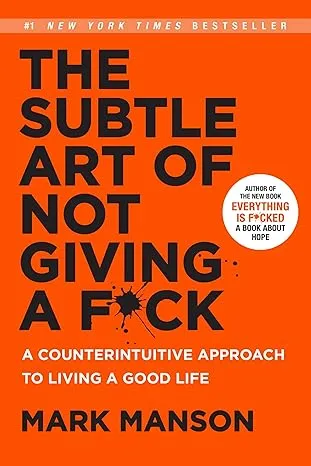📘 Book Summary
How to Win Friends & Influence People is a timeless self-help classic that provides practical techniques for improving interpersonal relationships and communication skills. First published in 1936, Dale Carnegie’s groundbreaking book offers concrete principles for making people like you, winning them over to your way of thinking, and becoming a more effective leader.
The book is divided into four main sections covering:
- Fundamental techniques in handling people
- Ways to make people like you
- Methods for winning people to your way of thinking
- Strategies for being a leader
Through real-world examples and actionable advice, Carnegie demonstrates how genuine interest in others, active listening, and strategic communication can transform both personal and professional relationships.
🔑 Key Takeaways
- Show genuine interest in others: People are more likely to like you when you demonstrate authentic curiosity about their lives and experiences
- Remember and use names: A person’s name is the sweetest sound to them in any language
- Listen more than you speak: Being a good listener makes you more interesting than being a good talker
- Make others feel important: Everyone wants to feel valued and significant
- Avoid criticism and condemnation: Direct criticism puts people on the defensive and rarely changes behavior
- Find common ground: Look for areas of agreement before addressing differences
- Let others save face: Allow people to maintain their dignity even when they’re wrong
- Use positive reinforcement: Praise and appreciation are more powerful motivators than criticism
📚 Overview
Carnegie’s masterpiece revolutionized the field of interpersonal communication and remains one of the most influential self-help books ever written. It combines psychology, practical wisdom, and real-world applications to create a comprehensive guide for anyone seeking to improve their relationships and influence.
What sets this book apart is its focus on genuine human connection rather than manipulation, emphasizing that successful relationships are built on mutual respect and understanding rather than cunning tactics.
✍️ About the Author
Dale Carnegie (1888–1955) was an American writer, lecturer, and pioneer in the fields of self-improvement, salesmanship, public speaking, and interpersonal skills.
Key Highlights:
- Grew up in poverty in Missouri and worked his way through college
- Became a successful salesman before discovering his passion for teaching public speaking
- Founded the Dale Carnegie Institute, which continues to offer training worldwide
- Authored several other books, but How to Win Friends & Influence People remains his most iconic
🌟 Reception and Impact
The book has sold over 30 million copies and has been translated into multiple languages, making it one of the best-selling books of all time. Its principles continue to be taught in:
- Business schools
- Leadership seminars
- Professional development courses
Notable Endorsements:
- Warren Buffett credits the book with changing his life
- Still recommended across industries for mastering soft skills
- Basis for Dale Carnegie Training programs, active globally with millions of graduates
🌍 Plot and World-Building
Although not a narrative story, Carnegie organizes the book around real-life scenarios, case studies, and historical anecdotes that highlight effective human behavior. These include references to:
- Abraham Lincoln’s leadership style
- Theodore Roosevelt’s interpersonal approach
- Business and everyday social encounters
The book essentially creates a timeless “social map” grounded in psychological consistency and emotional intelligence.
🎭 Main Storyline
The book progresses like a personal development course, gradually building skills from:
- Handling people without causing resentment
- Becoming more likable
- Influencing others’ thoughts and behaviors
- Leading effectively and compassionately
Each section builds upon the last, resulting in a well-rounded interpersonal communication system.
👑 Key Characters and Themes
You, the Reader – Positioned as the central figure undergoing transformation through Carnegie’s methods
Real-World Figures – Abraham Lincoln, Theodore Roosevelt, and Benjamin Franklin serve as models of effective human interaction
Core Themes:
- Appreciation and recognition are fundamental human needs
- Empathy is key to meaningful connection
- Making others feel valued builds lasting trust
- Criticism alienates, while praise inspires
- Persuasion stems from understanding, not control
- True leadership is about serving, not commanding
🧠 Who Should Read This?
- Professionals looking to lead or collaborate more effectively
- Entrepreneurs and salespeople
- Customer service representatives
- Teachers, coaches, and educators
- Parents and caregivers
- Students preparing for their careers
- Anyone who wants to improve social or communication skills
- Public speakers or presenters
- Readers interested in personal development or human psychology
💬 Best Quote
“You can make more friends in two months by becoming interested in other people than you can in two years by trying to get other people interested in you.”
📚 Final Thoughts
How to Win Friends & Influence People remains profoundly relevant even decades after publication. While some anecdotes may seem dated, the core lessons on human behavior are timeless.
Its real power lies not in clever tricks, but in sincere engagement with others. Those who practice its techniques with authenticity—not manipulation—will likely see significant improvement in both personal and professional relationships.
👉 Read This If You…
- Want to become more persuasive without manipulation
- Are looking to strengthen leadership skills
- Enjoy books on psychology, communication, and behavior
- Work in roles that require empathy and influence
- Need tools for navigating difficult relationships
- Loved books like The 7 Habits of Highly Effective People or Emotional Intelligence
❓ FAQ
Q: Is this book still relevant in the digital age?
A: Absolutely. The principles of respect, listening, and empathy apply just as much—if not more—in today’s online interactions.
Q: Is it manipulative?
A: No, not if used sincerely. Carnegie emphasizes authentic interest and respect, not exploitation.
Q: How long does it take to see results?
A: Many readers report noticeable improvements within weeks. Like any skill, consistency is key.
Q: Are there modern versions?
A: Yes, some editions include updated examples, but the original remains highly applicable.
Q: Is it good for introverts?
A: Yes! The advice often plays to introverts’ strengths like listening, empathy, and thoughtfulness.
📖 Buy How to Win Friends & Influence People on Amazon
📄 See More Summaries







